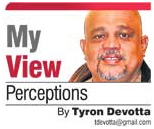Last week I wrote about how we can glocalise! It is the process of adapting or customising a product or service that is available all over the world to make it suitable to local needs. To further investigate this happening, I went on an active search of how we in Sri Lanka may use global ideas, tools and concepts and fashion it to suit local conditions.
And I stumbled upon this story. The regulator of the stock market in Sri Lanka was imposing restrictions on how trading was to be done. For me, the measures taken by the SEC was a good example of how we can glocalise.
Haven't we learnt enough from the mistakes of the rest of the world to not allow bubbles to form? According to media reports, the SEC revealed that certain investors who had come to the market with Rs. 50,000 had bought shares running up to Rs. 3 million.
It is natural that if at any stage these investors were to default on credit extended to them by brokers, it is bound to have a domino effect on the entire industry, thus creating a system collapse. There has been an example of where one investor who had come to trade with Rs. 1 million in hand had purchased shares to the tune of Rs. 4-4.5 million.
The SEC representative had said that the Stock Exchange needed day traders and speculators, but added the regulator could not allow them to control the market.
To say the least, hyping the market beyond its fundamental value and pushing sentiment up and up to make a quick buck is not a good thing. Of course there was outrage from some of the traders in the market! But the SEC was undeterred and appeared to be slowly trying to find ways to make the market a fair place for all to trade in.
In my view, very commendable, as whatever foreign example or norm quoted in support of a free-for-all in trading shouldn't happen here in Sri Lanka (well that's my view, anyway).
George Soros, a legend in world finance says that laissez faire (an economic doctrine that opposes governmental regulation of or interference in commerce beyond the minimum necessary for a free-enterprise system to operate according to its own economic laws), behaviour is a kind of market fundamentalism
(like the religious fundamentalism).
Soros is no spring chicken in the market and one would hardly expect him to say this, but he writes in his book 'The Crisis of Global Capitalism': "Market fundamentalism endangers the open society inadvertently by misinterpreting how markets work and giving them an unduly large role to play"
So what is open society? The concept of open society could be readily understood by contrasting it with the closed societies that totalitarian ideologies foster.
Soros says: "Market fundamentalism have a fundamentally flawed conception of how financial markets operate. They believe that financial markets tend toward equilibrium. Equilibrium theory in economics is based on a false analogy with physics. Physical objects move the way they move irrespective of what anybody thinks. But financial markets attempt to predict a future that is contingent on the decisions people make in the present."
So when you say the market is correcting itself, it does not mean it is reaching equilibrium, it means something else...
Soros believes that instead of just passively reflecting reality; financial markets are actively creating the reality that they, in turn, reflect "...market fundamentalism is today a greater threat to open society than any totalitarian ideology"
So a trader trying to manipulate the market is equated to a dictator governing a country, according to Soros that is... This analogy is a little bit funny but globalisation has brought in various quirks to our lifestyle and if we don't understand what is good for us and what is not, then we would be in a great deal of trouble. So there must be someone monitoring, and it is not necessarily a government regulator perse.
I remember when I was taking a housing loan 10 years ago, I would have liked to have had a bigger loan. But the bank had its rules, they checked my income and I got an amount less than what I expected. I am ever so grateful today that they did that. If I was in the USA, I know banks would have been lending far in excess of what I could afford to pay.
And in the same way, we need regulators who are not influenced by market sentiment. Again Soros says: "One of the great defects of the global capitalist system is that it has allowed the market mechanism and profit motive to penetrate into fields of activity they do not properly belong."
So kudos to the regulator, you are doing a good job in the Colombo Stock Market! And let's glocalise more...
(The writer, a PR consultant and head of Media360, was previously a mainstream journalist in print and electronic media. He also edits a new media website.)



